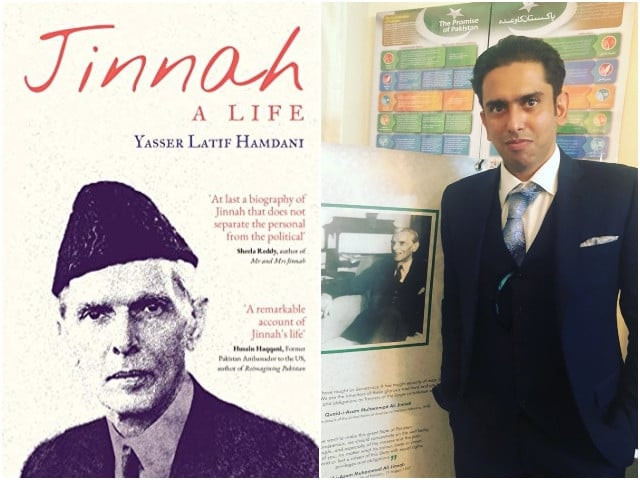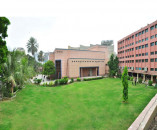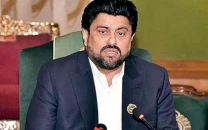Biographer calls for revival of Jinnah's vision for Pakistan
Yasser Hamdani laments Pakistan today is nowhere near the idea of modern state founder of the nation envisioned

Quaid-e-Azam Muhammad Ali Jinnah envisioned a democratic, inclusive and progressive nation-state in which women and minorities would have equal rights, said Yasser Latif Hamdani, the author of 'Jinnah: A life', at a talk at the Quaid-i-Azam House Museum, on Friday.
The talk, titled 'Jinnah and the Idea of a Modern Nation State', was organised by the Quaid-i-Azam Museum Institute of Nation Building. 'Jinnah: A life' is a very well-researched biography where arguments and analyses are backed by data from multiple sources.
Hamdani lamented that unfortunately, today the country is nowhere near the idea of modern state that the founder of the nation had envisioned. "I attempt to wake the people up to that idea through my book," he said.
"I was at the Sindh High Court this morning, arguing a case on the behalf of a Hindu citizen who said he not only has to declare on his national identity card that he is a Hindu but non-Muslim as well," he said.
"By forcing a citizen to make this negative declaration, you are telling him that you are somehow a second-class citizen, whereas Muslims are given supremacy," he pointed out. "This is something that, I think, completely contrary to the vision of the protector-general of minorities that Jinnah called himself."
Hamdani said that two kinds of words are used globally: secularity and secularism. "Secularity is simply impartiality of the state to various faiths, while secularism is the deliberate elimination of religion from the public sphere," he explained.
"I argue in my book that Jinnah's idea of a secular state was in perfect consonance, and not in contradiction with Islam. His idea of the state was a very plural, democratic, and modernist idea," said Hamdani.
According to the author, what Jinnah stood for was that any person with merit should be able to become the head of the state irrespective of his or her faith or beliefs.
"In Jinnah's famous August 11, 1947 speech, there are certain things that are well-known like 'you are free to go to your temples, mosques or any other place of worship in Pakistan' and 'you may belong to any caste or creed as it has nothing to do with the business of the state', but there are other lines that are swept under the rug. Those are even clearer in spelling out what kind of polity he [Jinnah] wanted," Hamdani pointed out.
"For example, Jinnah says 'in the due course of time, Hindus will cease to be Hindus and Muslims will cease to be Muslims'. He says it not in a religious sense for that is the personal faith of an individual but as citizens of one state," he said.
According to Hamdani, in that speech, Jinnah had further said that we are starting in the days where there is no discrimination or distinction between one caste or creed and another. Unfortunately, the author added, today's Pakistan is not how it had started in the days of Jinnah as there are discriminations today and the fact that the president and the prime minister of Pakistan cannot be non-Muslims goes against what Jinnah had preached. He opined that it was not religion that created Pakistan but it was the question of a major community's legitimate grievance against the rising Hindu majority. It was the question of how Muslims actually ensured their survival in post-Independence India, he added.
Published in The Express Tribune, September 24th, 2022.



















COMMENTS
Comments are moderated and generally will be posted if they are on-topic and not abusive.
For more information, please see our Comments FAQ